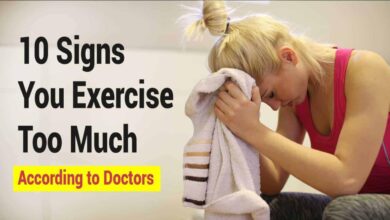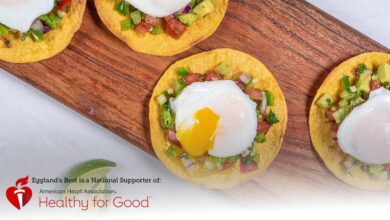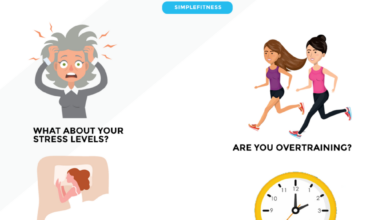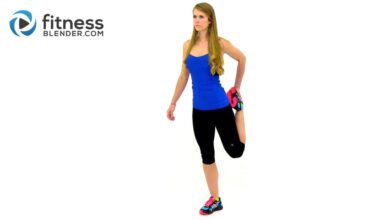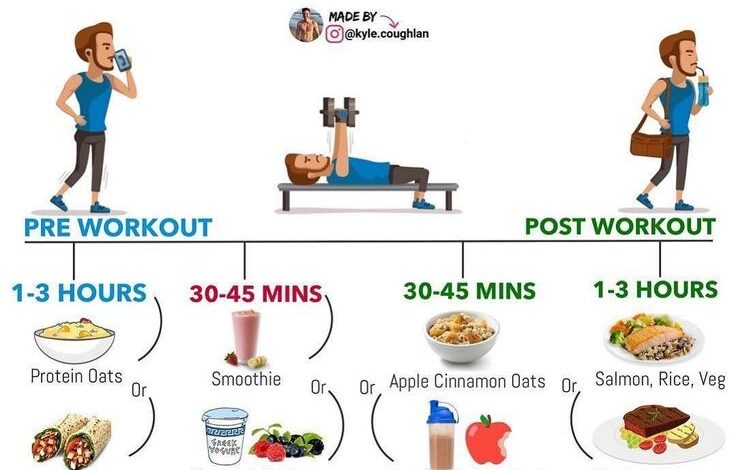
Eating Before or After Workout: Whats Best?
Eating before or after workout – a question that has sparked countless debates among fitness enthusiasts. Whether you’re a seasoned athlete or a casual gym-goer, understanding the impact of meal timing on your performance and recovery is crucial. Let’s dive into the science behind this topic, exploring the advantages and potential drawbacks of fueling up before or after your sweat session.
From the role of glucose and glycogen in pre-workout energy levels to the importance of post-workout nutrition for muscle repair, we’ll uncover the key factors to consider when optimizing your eating habits around exercise. We’ll also discuss the individualized approach, emphasizing the importance of listening to your body and tailoring your eating plan to your unique needs and workout routine.
The Impact of Timing on Energy Levels: Eating Before Or After Workout
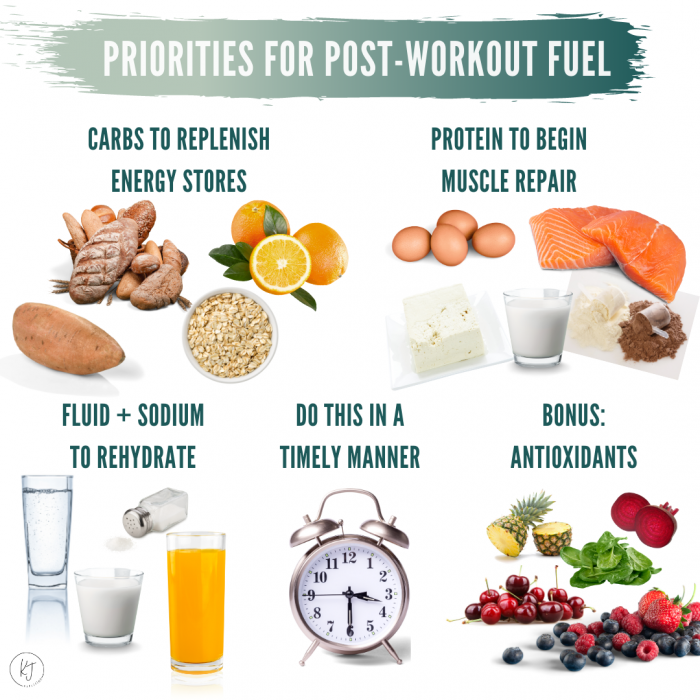
The timing of your meals in relation to your workouts can significantly influence your energy levels and overall performance. Understanding how your body utilizes energy sources during exercise and recovery is crucial for optimizing your training.
Energy Levels Before a Workout
The primary energy source for your muscles during exercise is glucose, which is stored in your body as glycogen. Consuming carbohydrates before a workout replenishes glycogen stores, ensuring a readily available energy source for your muscles. This can lead to improved endurance and performance.
Energy Levels After a Workout, Eating before or after workout
Eating after a workout is crucial for muscle repair and recovery. During exercise, muscle fibers are broken down, and your body needs nutrients to rebuild them stronger. Consuming a balanced meal containing protein and carbohydrates after a workout helps to replenish glycogen stores and provide the building blocks for muscle repair.
Energy Levels When Working Out Fasted Versus After a Meal
Working out in a fasted state, meaning without consuming a meal beforehand, can lead to a different energy profile compared to working out after a meal.
- Fasted State:When you exercise in a fasted state, your body primarily relies on stored glycogen and fat for energy. This can lead to a slower pace and reduced endurance compared to exercising after a meal. However, some studies suggest that fasted workouts can promote fat burning and improve insulin sensitivity.
Deciding whether to eat before or after a workout is a personal choice, but I find fueling up beforehand gives me the energy I need. For a post-workout meal, I love a satisfying chicken and sweet potato farro bowl – it’s packed with protein and complex carbs to help my muscles recover and rebuild.
This way, I’m covered for both my pre- and post-workout needs!
- After a Meal:Exercising after a meal provides your body with a readily available source of glucose from the consumed carbohydrates. This can lead to increased energy levels, improved performance, and potentially faster recovery. However, it’s important to note that eating too close to a workout can lead to digestive discomfort.
Nutritional Considerations
Fueling your body with the right nutrients before and after your workout is crucial for optimizing performance and recovery. Understanding the importance of proper nutrition can help you maximize your workout gains and minimize the risk of injury.
Pre-Workout Meals
Pre-workout meals play a vital role in providing your body with the energy it needs to power through your exercise session. Choosing the right foods can help you feel energized, focused, and ready to perform at your best. Here are some examples of foods that are ideal for pre-workout meals:
- Carbohydrates:Carbohydrates are the primary source of energy for your muscles. Opt for complex carbohydrates like whole grains, fruits, and vegetables. These provide sustained energy release, keeping you fueled throughout your workout.
- Protein:Protein is essential for muscle repair and growth. Include lean protein sources like chicken, fish, beans, or tofu in your pre-workout meal. Protein also helps to promote satiety, keeping you feeling full and satisfied.
- Healthy Fats:While you may not need a large amount of fat before a workout, including a small amount of healthy fats can help improve energy levels and promote satiety. Good sources of healthy fats include avocados, nuts, and seeds.
Post-Workout Meals
After a strenuous workout, your body needs to replenish its energy stores and begin the process of muscle repair and recovery. Post-workout meals should focus on providing a combination of carbohydrates, protein, and fluids.Here are some examples of post-workout meals that promote muscle recovery and replenishment:
- Protein Shakes:Protein shakes are a convenient and effective way to get a quick dose of protein after a workout. They help to stimulate muscle protein synthesis and aid in recovery.
- Chicken and Rice:This classic combination provides a balance of protein and carbohydrates to help replenish energy stores and support muscle repair.
- Greek Yogurt with Berries:Greek yogurt is a great source of protein and calcium, while berries provide antioxidants and carbohydrates. This is a refreshing and healthy option for post-workout recovery.
Hydration
Water is essential for optimal physical performance and recovery. Staying hydrated throughout your workout is crucial for maintaining energy levels, regulating body temperature, and preventing dehydration.
The timing of your meals around exercise can significantly impact your performance and recovery. Some prefer to fuel up before a workout, while others find it better to eat afterward. But sometimes, it’s good to thinking outside the lox and consider factors like your individual metabolism, workout intensity, and personal preferences.
Ultimately, finding what works best for you is key to achieving your fitness goals.
- Before Exercise:Start your workout well-hydrated by drinking plenty of water in the hours leading up to your exercise session. Aim to drink at least 16 ounces of water two to three hours before your workout.
- During Exercise:Continue to hydrate during your workout by sipping water or a sports drink regularly. The amount you need to drink will depend on the intensity and duration of your workout, as well as your individual needs.
- After Exercise:Replenish fluids lost during your workout by drinking water or a sports drink. Aim to drink at least 16 ounces of water within two hours of finishing your workout.
Individualized Approach
There’s no one-size-fits-all answer when it comes to deciding whether to eat before or after your workout. The ideal timing depends on a variety of factors, including your individual fitness goals, workout intensity, duration, and personal preferences.The key is to listen to your body and adjust your eating habits accordingly.
Experiment with different strategies to find what works best for you.
Factors Influencing Meal Timing
The intensity and duration of your workout play a significant role in determining the optimal timing of your meals.
- High-intensity workouts:If you engage in high-intensity interval training (HIIT) or other intense workouts, it’s generally recommended to eat a light meal or snack 1-2 hours before your workout to provide your body with fuel. This allows your body to digest the food and provide energy for the workout.
Deciding whether to eat before or after a workout can be a personal preference, but I find that fueling up with a light meal beforehand gives me the energy I need to push through my routine. And when I’m craving something both delicious and nutritious after a good sweat, I love indulging in sustainable seafood sushi bowls.
The combination of fresh, high-quality ingredients keeps me feeling satisfied and energized, making it a perfect post-workout treat.
However, if you feel uncomfortable or experience digestive issues, you can opt for a smaller snack closer to your workout or even skip eating altogether.
- Moderate-intensity workouts:For moderate-intensity workouts, such as jogging or cycling, you can eat a meal 2-3 hours before your workout. This allows for sufficient digestion and energy supply.
- Low-intensity workouts:For low-intensity workouts, such as yoga or walking, you can eat a meal closer to your workout, or even after.
Personal Preferences
Everyone’s body is different, and what works for one person may not work for another. Pay attention to how you feel before, during, and after your workouts.
- Listen to your body:If you feel sluggish or experience digestive discomfort after eating before a workout, consider eating a smaller snack or eating later.
- Experiment:Don’t be afraid to experiment with different strategies and find what works best for you.
Sample Meal Plan for HIIT
Here’s a sample meal plan for someone engaging in HIIT, focusing on providing adequate energy and nutrients for a high-intensity workout:
Pre-Workout (1-2 hours before)
- Oatmeal with berries and nuts:Provides complex carbohydrates for sustained energy, fiber for digestion, and healthy fats for satiety.
- Smoothie with protein powder, fruit, and spinach:Offers a quick and convenient source of protein, carbohydrates, and vitamins.
- Whole-wheat toast with avocado and egg:Provides a combination of healthy fats, protein, and carbohydrates for sustained energy.
Post-Workout
- Protein shake with fruit:Replenishes muscle glycogen and provides essential nutrients for recovery.
- Chicken breast with brown rice and vegetables:Offers a balanced meal with protein for muscle repair, carbohydrates for energy replenishment, and fiber for digestion.
- Tuna salad with whole-wheat crackers:Provides a good source of protein and healthy fats for recovery.
Potential Drawbacks
While timing your meals around workouts can offer benefits, it’s crucial to be aware of potential drawbacks. Eating too close to exercise or working out on an empty stomach can negatively impact your performance and overall well-being.
Digestive Discomfort
Eating a large meal immediately before a workout can lead to digestive discomfort. The body prioritizes digestion, diverting blood flow away from muscles, which can lead to a feeling of heaviness, bloating, and nausea. This can significantly hinder your performance and enjoyment of the workout.
Reduced Performance
While a small snack before exercise can be beneficial, consuming a large meal too close to your workout can negatively impact your performance. The body needs to focus on digesting the food, diverting energy and blood flow away from your muscles.
This can result in fatigue, reduced strength, and a slower pace during your workout.
Working Out on an Empty Stomach
Exercising on an empty stomach can also pose challenges. While some individuals find this beneficial, others may experience low blood sugar, dizziness, and fatigue. This can lead to a decreased workout intensity and a higher risk of muscle breakdown.
Finding the Right Balance
The ideal approach is to find a balance that works best for you. Experiment with different timing strategies and meal sizes to determine what suits your body and workout needs. Consider factors such as the intensity and duration of your workout, your individual tolerance for food before exercise, and your overall dietary preferences.
Closure
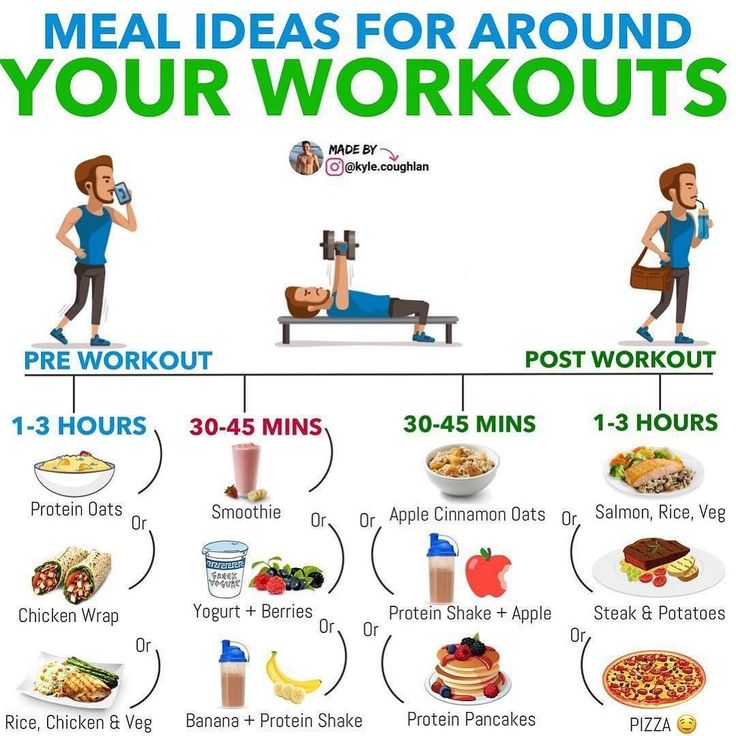
Ultimately, the best time to eat before or after a workout depends on your individual goals, workout intensity, and personal preferences. By understanding the science behind meal timing and listening to your body’s cues, you can find a balanced approach that maximizes your performance and supports your overall fitness journey.
Remember, fueling your body properly is an essential component of achieving your fitness aspirations, so don’t underestimate the power of mindful eating around exercise.

